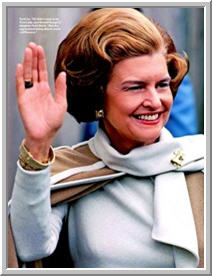The New Face of Cancer
 Healthy, active and candid about their cancer diagnosis
Healthy, active and candid about their cancer diagnosis
When first lady Betty Ford spoke out after her 1974 mastectomy, it was a turning point in the cultural conversation about cancer. Thanks in part to Ford’s openness (and to many high-profile cancer survivors who followed her), cancer is no longer a private matter. It’s part of the public dialogue.
Today when public figures talk about their cancer diagnosis, they aren’t shattering taboos. Far from it. Testicular cancer survivor Lance Armstrong, breast cancer survivors Sheryl Crow and Christina Applegate and others have become visible, vocal reminders that one can live an active and healthy life after cancer.
When celebrities come out and say, “I’ve struggled with this”, it gives hope. It increases awareness, it removes stigma and it helps with confidence.
Decades ago there was a social stigma surrounding cancer that even influenced how doctors discussed the disease with their patients. Celebrities help make people more comfortable, but they also reflect how the culture in general is more comfortable.
But not everyone is Lance Armstrong. People think cancer is something you get and then you move on with your life and win bike races and have babies. Some of these higher profile folks who have lived really well and gone on to do great things make others feel that’s the expectation. Everyone thinks they hold the winning lottery ticket like Lance Armstrong.

